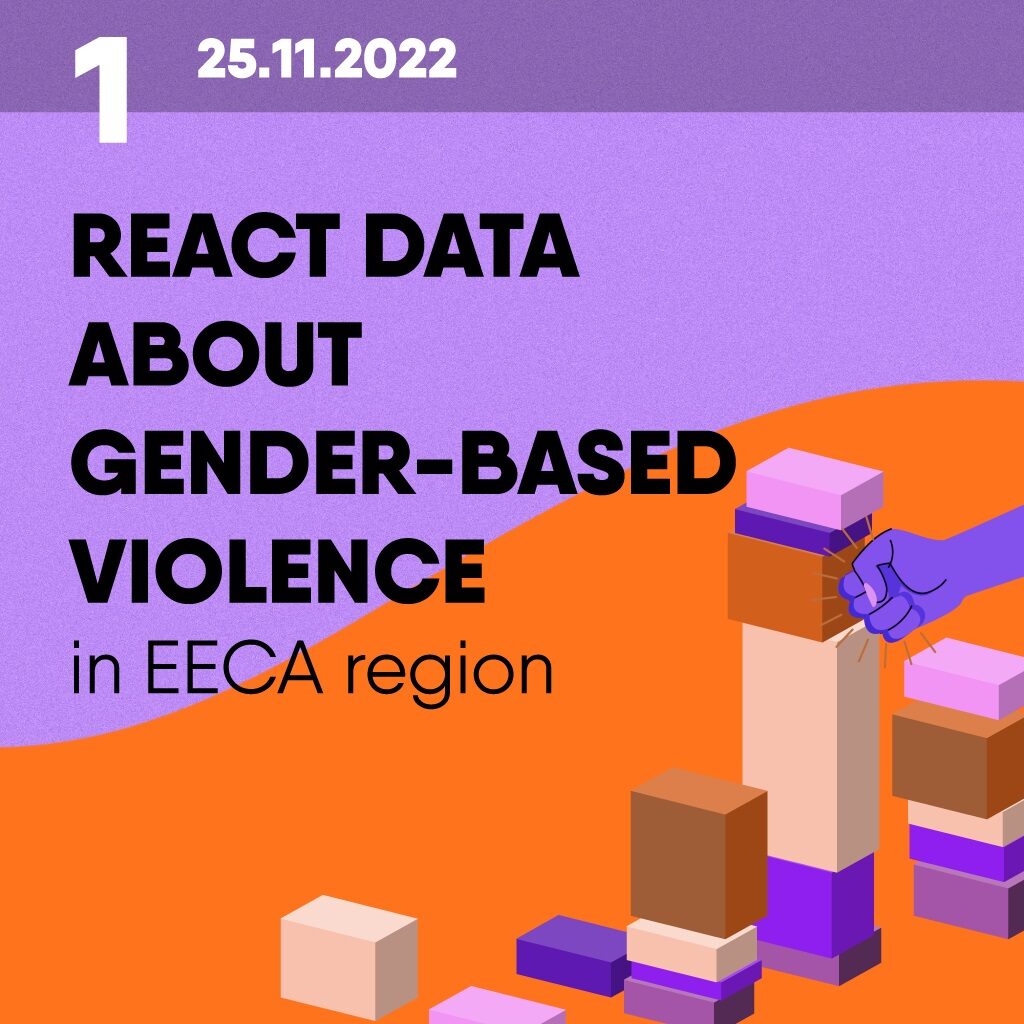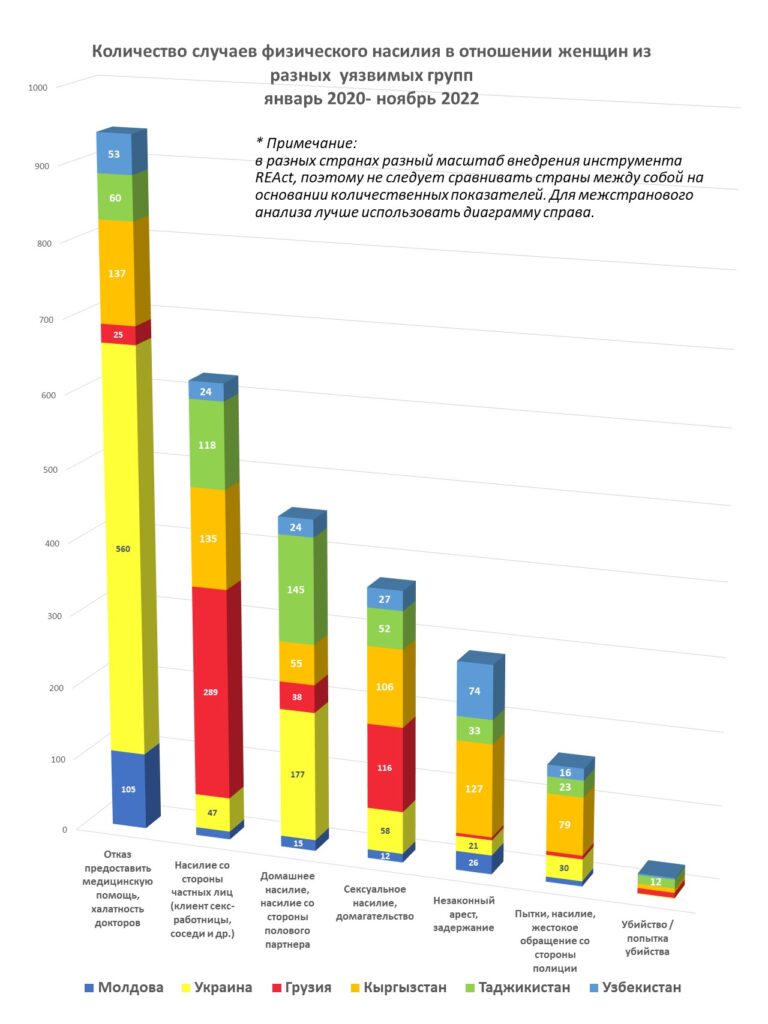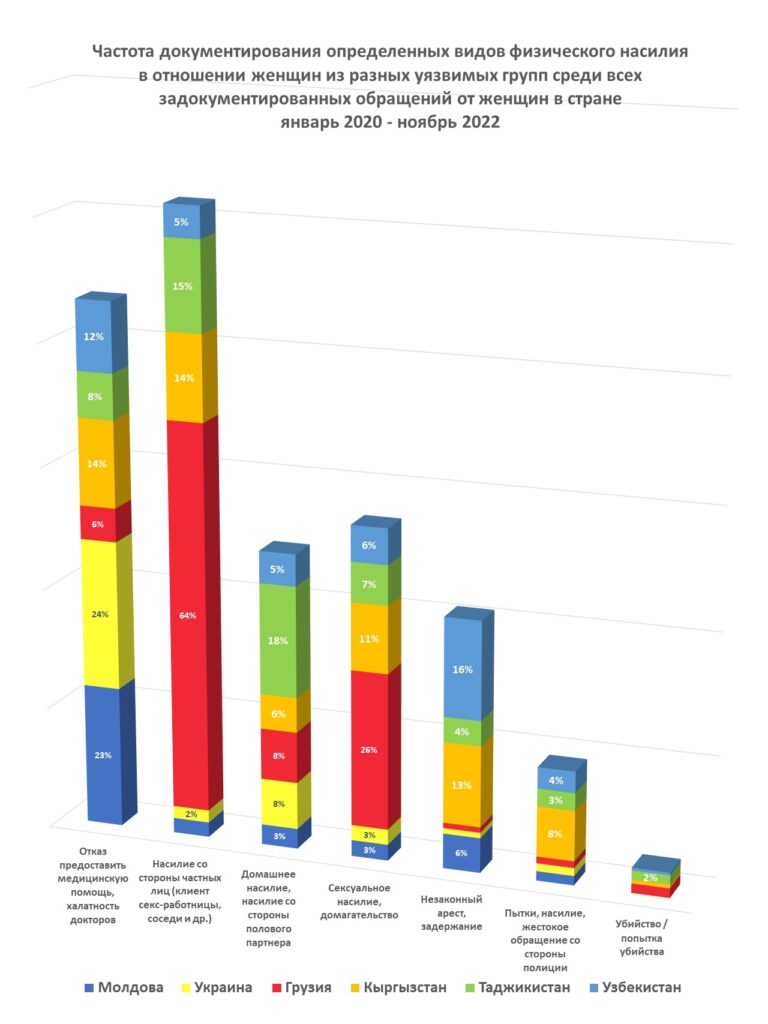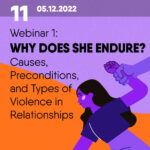REAct data on violence against women in the EECA region

Violence against women continues to be a significant public health and human rights violation problem. Gender inequality, physical and emotional partner violence, sexual violence, stigma, and discrimination based on women’s key risk groups are key barriers that prevent equal access to health, and social and legal services, and seriously harm women’s health.
For the period 2020-2022, more than 12,000 complaints about violations of the rights of key communities from 6 countries of Eastern Europe and Central Asia (EECA) were recorded in the REAct system. Of the total number of applicants, women average account for 46%, trans*women – 1%. At the same time, an almost equal ratio of recorded applications from men and women is observed in all countries.
Thanks to the efforts of public organizations, women are increasingly making a decisive choice in favor of defending their rights. A large proportion of women’s coverage by legal and social services is the result of gender-sensitive interventions in countries.
So in Uzbekistan and Tajikistan, starting in mid-2021, an emergency hotline was launched for women who, due to the COVID-19 pandemic, were locked up with an offender. Based on calls to the hotline, a study was later conducted on the main types and forms of violence faced by women during the pandemic.
In Ukraine, an organization that documents cases of women’s rights violations in the REAct system in several regions, namely the CF “Positive Women”, is constantly working to improve the provision of assistance to women victims of gender-based violence. In particular, through cooperation with the local police by implementing the joint activities aimed at protecting the interests and rights of women living with HIV and victims of gender-based violence.
The full-scale Russian invasion of Ukraine in February 2022 exacerbated the human rights situation in the country in general, and among women in particular. In addition to stigma and discrimination against representatives of key communities, women face violations of their rights as internally displaced persons. It is not uncommon for women to choose to be engaged in sex work in their place of temporary displacement as a way of coping with a crisis. Documented evidence of physical and sexual abuse of Ukrainian women by the occupiers is just beginning to appear in the public information space.
You can also read about these and other consequences of the war and the forced migration of women in the situational reports of the Ukrainian REAct team, whose REActors continue to work despite constant rocket attacks.
- Situational report on the work of REAct in Ukraine – as of June 2022 (in English).
- Situational report on the work of REAct in Ukraine – as of September 2022 (in English).
Physical violence


Analyzing the right graph, we see that 24% of all women who applied in Ukraine reported the negligence of doctors and the refusal to provide medical services, as result a significant damage was caused to their health. In Uzbekistan, this figure is 23%, and in Kyrgyzstan – 14%. Most often, such a refusal by doctors is caused by the patient’s HIV status or drug use.
64% of all women who applied in Georgia reported that they had experienced physical violence by private individuals. Most often, these are cases of violence by clients of sex workers. Georgia also has the highest rate of sexual violence against vulnerable women. Likely, this figure is also high in other countries, but due to fear of persecution and distrust of law enforcement agencies, women in Central Asia hide their experiences of violence and are not ready to defend their rights.
Domestic violence occurs evenly among applications from all countries in the region. On average, one in six clients of REAct partner organizations has experienced domestic violence. The figure is much higher because due to the taboo of the topic of domestic violence, not all victims are ready to talk about their experiences and even more so to seek legal assistance.
Law enforcement violence and abuse are most common in Kyrgyzstan, Uzbekistan, and Tajikistan. During unauthorized arrests and raids to hunt sex workers, the police go beyond their authority and use force against the women they detain. It is noteworthy that almost every detention by the police is accompanied by the use of force and beatings, not to mention psychological pressure and extortion of money.
Economic and psychological violence

HIV status, drug use, sex work, and criminal convictions cause additional vulnerability for women in EECA region. Women are often victims of threats, blackmail, and intimidation. In Georgia and Kyrgyzstan, every second woman who contacted REActors reported being harassed by private individuals or law enforcement agencies. Often such persecution is carried out for extortion or taking a bribe, which inflicts additional economic violence on the woman.
In Kyrgyzstan and Uzbekistan, 90% of cases of extortion of a bribe were recorded concerning law enforcement officers. Often, the weekly bribe extorted to the district police officer (mark) exceeds the weekly earnings of the sex worker. Such situations can be safely equated with slavery, forced labor and sexual exploitation.
HIV status is often a barrier for a woman to get a job. In the EECA countries, the practice of requiring an HIV certificate for employment is still preserved. Women are often fired as soon as their status is somehow known to the employer or colleagues.


